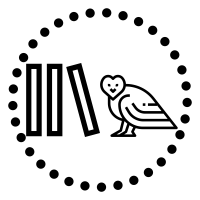Writer and professor Rachel DeWoskin’s second poetry collection, absolute animal, subtly exposes the thin line separating humans from other living things, those inarguable similarities to the earth and how they lead us to long for its connection. She has a way of questioning and erasing the distance we insist is there. We are, simply, bodies with much out of our control.
Sometimes illness shoves that lack of control in our face. DeWoskin writes about deciding what to wear to the oncologist, in “dressing,” mixing humor with the fear of not knowing what the doctor will find. “i can’t bear terrible news / in sneakers or anything a little legging-like, sleepy sweats, pajamas, / jeans? no way.” She writes about her dad’s heart problems and how “we learn hospital language fast.” She questions what existence, or a body, really means on its own, without something else to compare it to. In another poem, she writes, “when we have nothing, we can’t sing / of much, since each thing / needs like, that hard sharp tooth / to press words up against, define.”
Turning to the natural world may provide certain answers, even with the unending interrogations science then brings. And these opposing realities may be more present for mothers, who bear the brunt of procreation and survival, yet also emotional weight. From “vanity”:
this body’s still mainly mine, and what’s real anyway, what I kept or gave
away? what makes us, what we lose or save?
where i am at night, the foxes scream
in human tones, mom mom mom mom mom mom, i turn,
yes? but every angle hides surprises i created
and forgot.
In these poems, DeWoskin doesn’t capitalize anything and uses minimal punctuation, as if rejecting the departure the rules of language provide. How do these constructions actually make us superior? More awake, maybe, but also more problematic, disturbed.
Throughout her persistent, startling collection, the poet also fuels meaning into womanhood, and everything that’s lost or gained from being female. In “let me be” she becomes a sunflower, “finished with niceties, crazed with light, with wonder as rage, or maybe it’s only i’m no longer me {have been let be}, now too full of scalding sunshine to get out of the way.” Let me be powerful, the narrator says, a reflection of our never-ending quest for credibility in a man’s world.
How do women continue to derive meaning from all the contrasting themes of life? At the end of another of DeWoskin’s poems:
what harms
us most? women
live brutal moments woven
into patterns we’d unweave if not for
all we’re in {time, scaffolding, this/that trap}, also, more
than time, can we please change
the factories of ourselves, rearrange
what meaning is, stop squinting all
the time at what we have to make and take?
turn animal—
Several poems in absolute animal end this way, sharply, with an em-dash as a sign the conversation’s not over. More than uncertainty—the uncertainty that follows women around like a second soul from birth—these end breaks speak to a kind of confidence. No period can create that kind of pull, the kind of pointed space these dashes demand at the end of a beautifully written line of experience.
In the poem “some girls,” she writes, “dear faint girls, i drove that highway / too, that’s not control.” And then, “i know the sound / of please erase me and the flesh always left to mock / our work {there’s never skeleton enough}, try this: to be someone / worth love, a baby, say…”
Or maybe, an animal. It makes sense to envy beings that don’t carry the baggage we carry, with our loss and our sickness and our victimhood, our pain and fear. Lucky is the living thing that simply keeps reaching upward and is given so much by demanding little. Perhaps DeWoskin is asking for this level of freedom, which is at once everything, yet not much.
She writes, “let me be not in a garden but wild and enormous, let me take up more light than i need, want, deserve, more, more than any other cluster of petals can grab or soak first, i’ll block and gobble it all, let will be my reason/appetite be my will.”
Can envy be hopeful? DeWoskin might say yes, might say that in seeing another’s gendered privilege or power or peace we assume we only need to work harder, that the next season of crops is the one when things might be different. absolute animal is a graceful reminder of why links to other living things matter and why examining the human experience is one of our only respites from what we cannot change.

POETRY
absolute animal
By Rachel DeWoskin
University of Chicago Press
Published November 21, 2023

